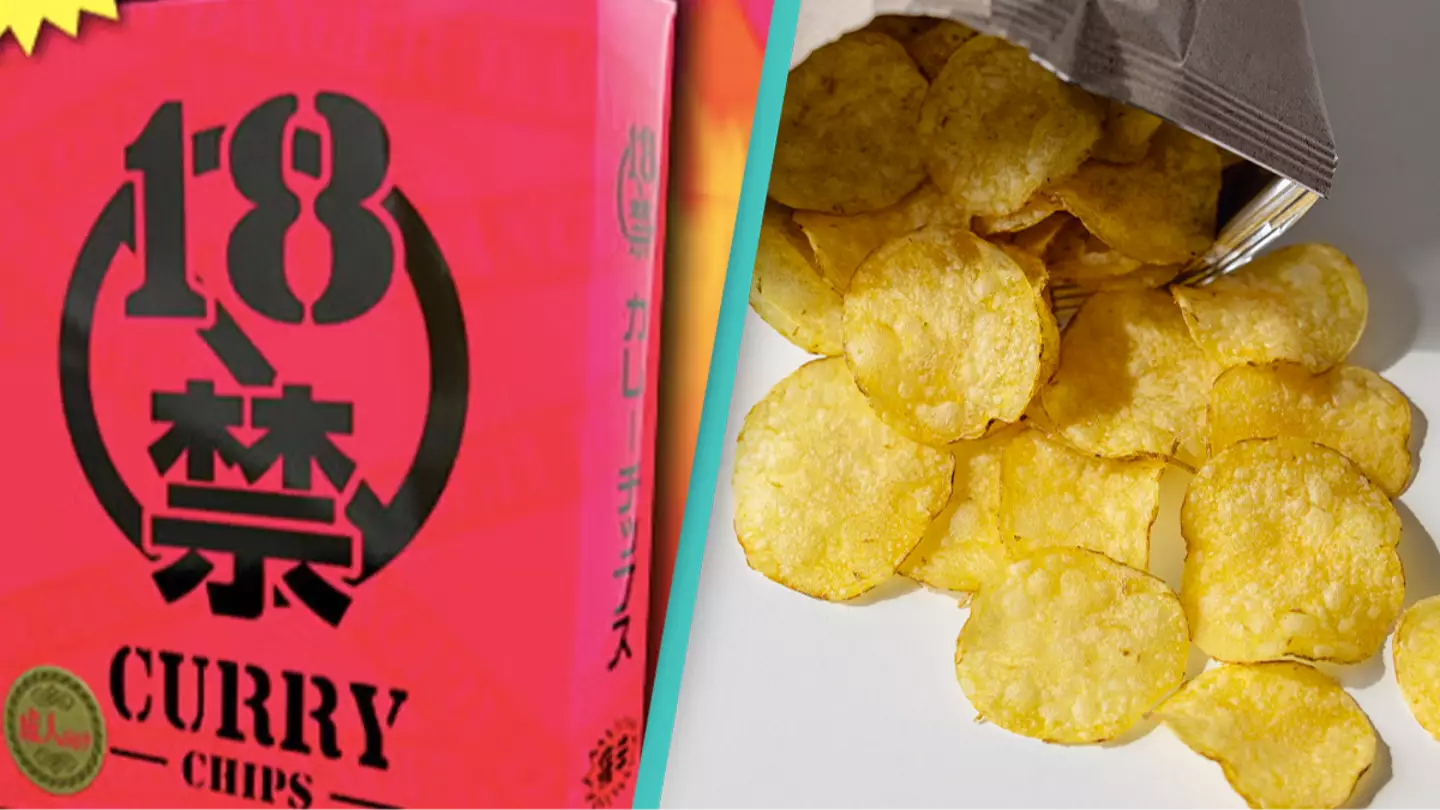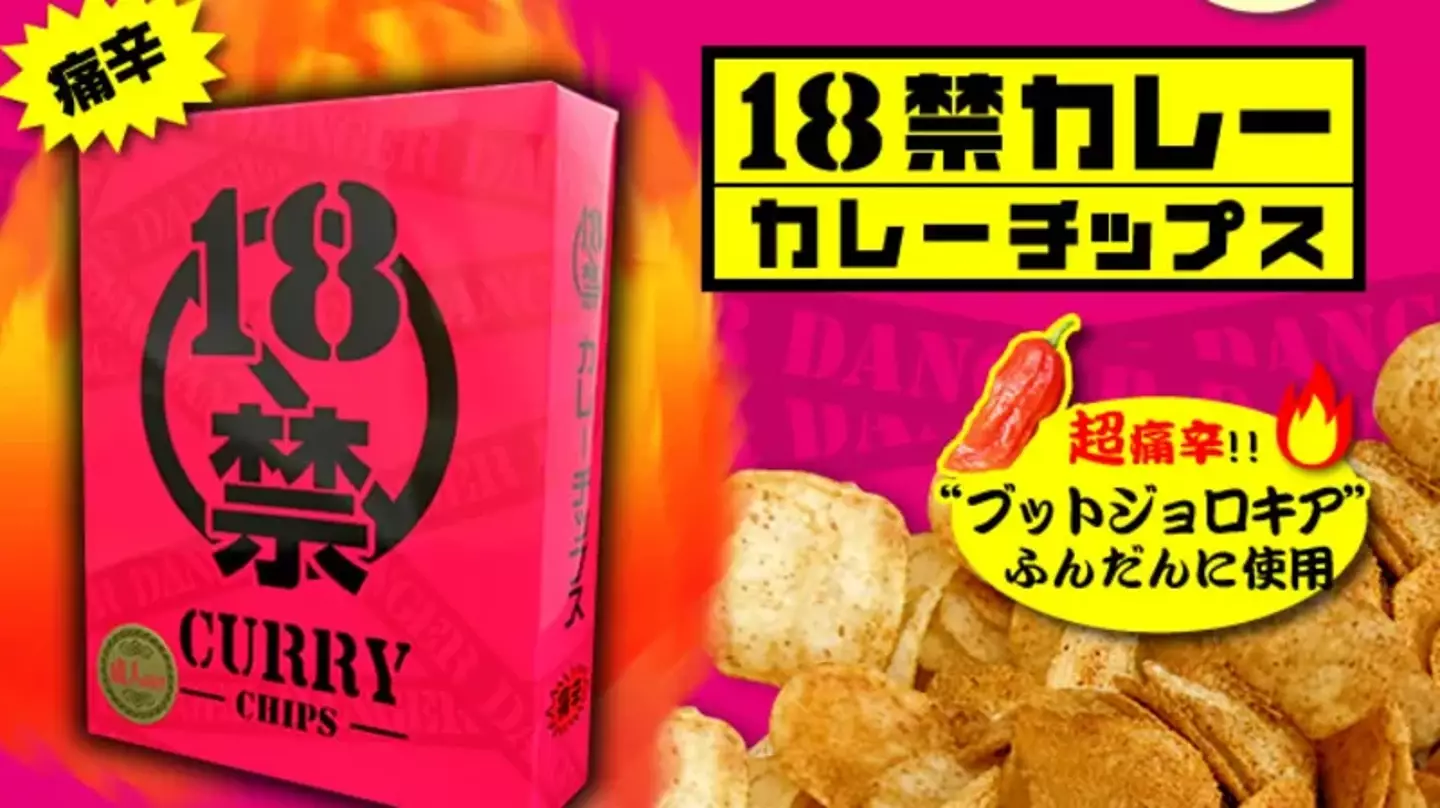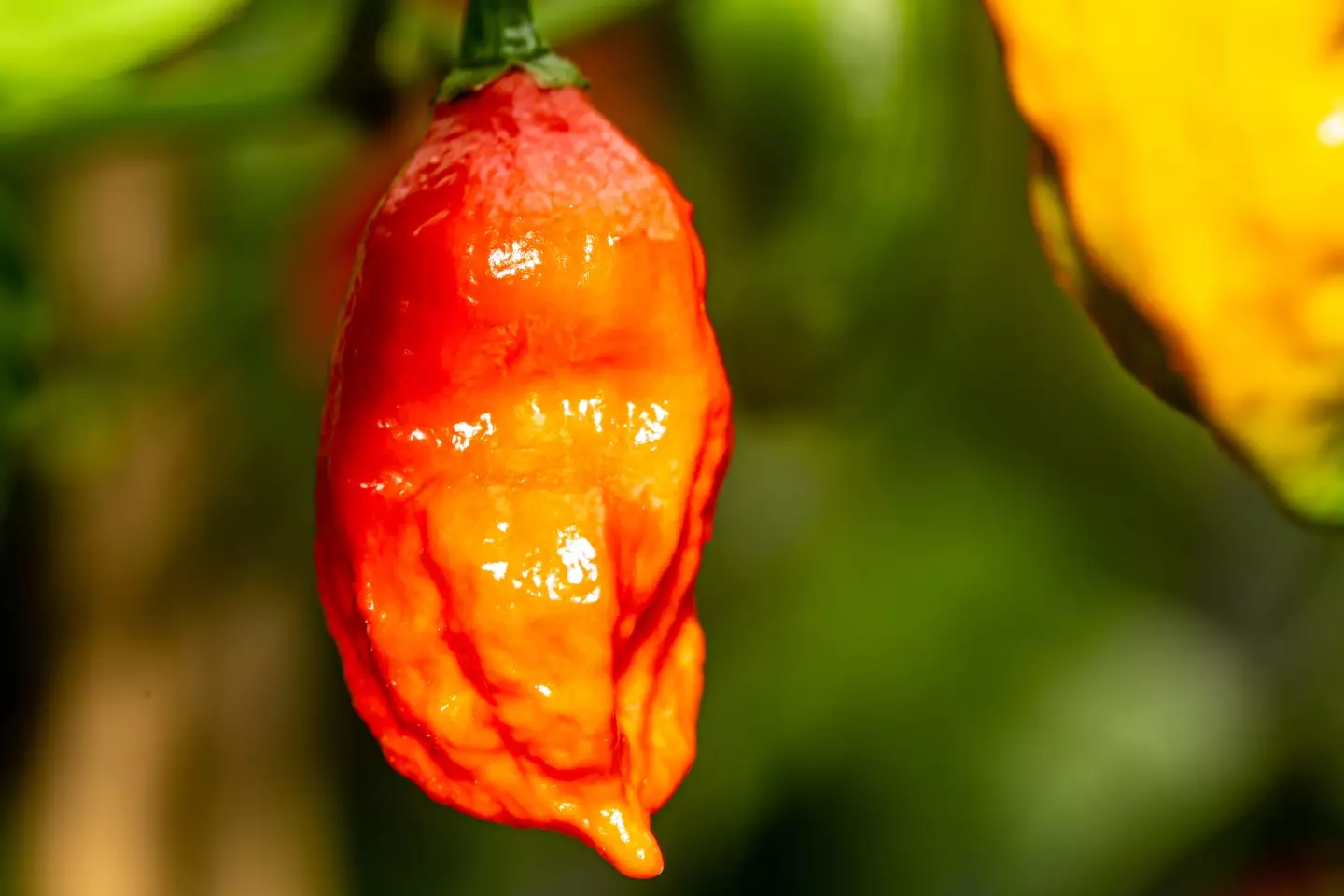
A number of students in Japan were rushed to hospital after consuming a 'super spicy' chip.
The snack is manufactured by the Isoyama Corp, and warns would-be consumers about the extreme heat it contains.
Around 30 students at a Tokyo high school are thought to have eaten the snack at school yesterday morning (16 July), despite the numerous warnings it contains, including recommending that people under 18 not eat it.
The company recommends people who eat the chips, called 'R 18+ curry chips', should 'eat with caution'.
Advert
It adds that the chips are 'so spicy that they may cause you pain', and recommends people not to 'eat the chips when they are alone'.
In addition, there is also a warning for anyone who already has a gastrointestinal health issue, which the company says 'are absolutely prohibited' from consuming the snack.
But a student brought a pack of the extremely spicy chips into school, reportedly telling local media that it was 'just for fun'.

Advert
Soon enough, some of the students who ate the snack complained of nausea and pain around their mouths, and the police and fire department were called.
Thirteen girls and one boy were taken to hospital with minor symptoms after consuming the snack.
The Isoyama Corp put out a statement on Wednesday in which it 'apologised for any inconvenience'.
It added that the company 'sincerely wished for the swift recovery of those who have reported feeling unwell'.
Advert
The chips are made using the Ghost Pepper.
This is a pepper commonly grown in Northeast India, where it's called bhut jolokia, or 'Bhutanese Pepper' in Assamese.
The pepper's intense heat means it is widely used to spice up dishes, including in curries, pickles, and chutneys, as well as being a regular feature in western-style hot sauces.
But the intense heat means that the pepper also has uses outside of the kitchen as well.
Advert

In 2010, it was reported that the pepper was being used in a 'chilli grenade' which works in a similar manner to pepper spray or teargas.
The chillies have even been used as a way to deter elephants from destroying crops which would not cause the animals any serious harm.
In 2007, bhut jolokia was verified as the hottest chilli pepper in the world, coming in at a scorching 1,041,427 Scoville Heat Units (SHU).
Advert
This means that the pepper would have to be diluted in water 1,041,427 times to render the heat completely neutralised.
But in 2013 bhut jolokia was overtaken by the infamous Carolina Reaper as the hottest pepper, which clocks in at an average of 1,569,300 SHU.
In 2023 however, the Reaper was knocked off the top spot by Pepper X, with 2.69 million SHU.
UNILAD has reached out to Isoyama Corp for comment.
Topics: News, World News, Japan, Food and Drink, Health
